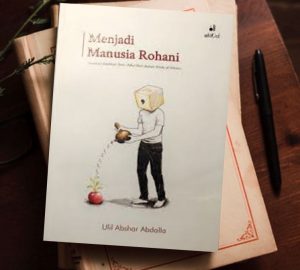This year’s Ramadan felt special to me. The privilege was in the atmosphere of online recitation via livestreaming on Facebook initiated by several scholars and kiai of Islamic boarding schools. I named it Pesantren Virtual (virtual boarding school); boarding schools that are open to anyone, whoever and whatever background they have, are allowed to join in.
The virtual world has become a kind of global boarding school that accommodates various students from various backgrounds to take part in Islamic studies administered by a kiai or scholar. This is another function of the benefits of social media in this millennial era.
The online recitations that I often follow are the recitation of the book Ihya ‘Ulumuddin writen by Imam Al-Ghazali by Nahdhatul Ulama Scholars (NU) Ulil Abshar Abdallah, every night at 9:00 a.m. to 10:00 p.m. WIB. Recitation of the book Bidayatul Hidayah, the basic tasawuf book of Hujjatul Islam Al-Ghazali, by Kiai Mustofa Bishri (Gus Mus) through the Gus Mus Channel Youtube account every day at 8:00 p.m.-22:00 p.m. from the Raudhotut Thalibin Leteh boarding school, Rembang.
In my observation, the recitation of Live streaming via Facebook was not there for Ramadan two years ago. Even last year, our social media atmosphere was dominated by wanna-be-ustaz who were so superficial in their Islamic knowledge. At that time, NU scholars and kyai had not mastered the social media.
Dissemination of Moderate Islam
The online recitations held by NU’s kiai and scholars is a manifestation of the desire to disseminate the idea of moderate Islam, respect diversity and want to give another voice to internet users.
Gus Ulil Abshar Abdallah for example, choses the famous Ihya Ulumiddin book as Sufism because it sees the phenomenon of the rise of intolerance and the escalation of dangerous radicalism. Sufism is an oasis of spirituality drought conditioning which is important to read as a counter narrative for radicalism.
Social media needs to be filled with calm, peaceful and free from utterance of hatred contenr. This kind of da’wah turned out to be viral and became a hot topic talked about by people. Ulil Abshar Abdallah was then flooded with invitations to teach Ihya Ulumiddin book in various regions, and even to Korea.
Ramadan online reading in the style of Islamic boarding schools has many benefits, among the benefits – according to my observations are many of the values contained in the books taught, which need to be uploaded online to stem the radicalism that is rife lately. As an example of the recitation of the book Ihya Ulumidin by Hujjatul Islam Al-Ghazali, which was taught by KH Ulil Abshar Abdallah, is the importance of guarding the heart. Al-Ghazali’s heart is defined by lathifatun rabbaniyatun ruhaniyah (something soft, divine, spiritual in nature and even the essence / essence of humanity). The heart is not in the sense of a single organ, which is on the left side of the human chest, but heart in the context of ruhaniyah.
The heart occupies an important position in the context of Sufism. By Imam Ghazali, likened to a king or queen, while the human body is his kingdom. If someone’s heart is good then what is released from his body will also be good, and vice versa, if the heart is evil, then what comes out of the body will also be evil and destructive. When someone can take care of his heart, then he will be able to control what comes out of his mouth, or what will be written by his hand.
When dealing with social media (twitter, facebook and others) someone who can control the heart will be better able to protect themselves from spreading hoax or spreading infiltration of radicalism. He will first clarify or tabayun to the authorities. So the recitation of tasawuf online can actually be a stronghold of radicalism and terrorism ideology.
Wallahu A’lam Bi Ashwaab
This article is available in Indonesian




